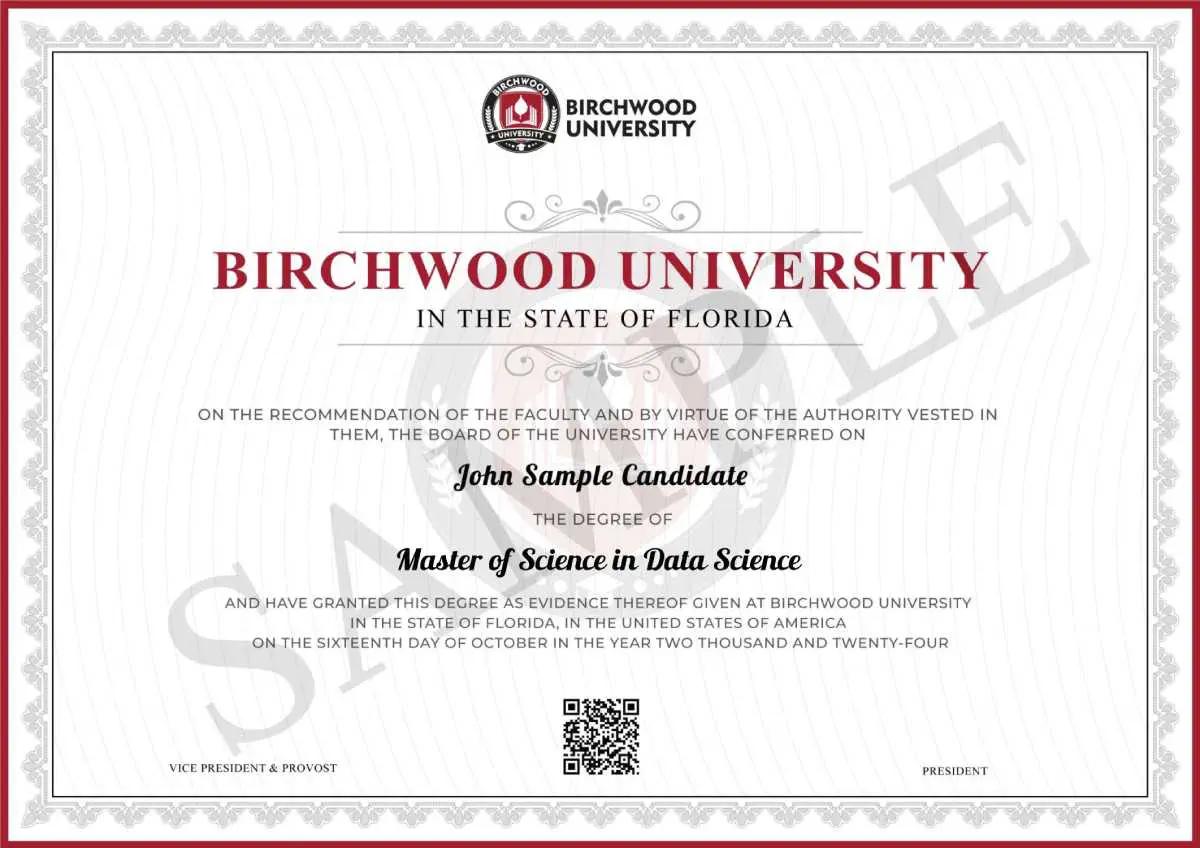Master of Science in Data Science
Master of Science in Data Science
The Master of Science in Data Science is a rigorous, 18-month program that equips students with both foundational knowledge and advanced skills critical for succeeding in today's rapidly evolving technological landscape. This degree is meticulously designed to cover a broad range of core analytical competencies and technical skills, addressing the diverse demands of industries increasingly reliant on data-driven decision-making.
The Master of Science in Data Science serves as a transformational educational experience for individuals looking to advance their careers in the data-driven world. By combining analytical competencies with technical skills and practical experiences, graduates are well-prepared to take on the challenges of the global industry. Whether aiming for roles in data analysis, machine learning engineering, or data strategy, the knowledge and expertise gained from this program will be instrumental in navigating the complexities of modern data management landscapes.
For help, give us a call:+1 (407) 815-7366

The Data Science Landscape
Why choose a Master of Science in Data Science ?
The Master of Science in Data Science opens the door for your career in data-driven businesses. After your graduation, you are typically responsible for all aspects of transforming data into value, from designing the technical infrastructure to building advanced machine and deep learning models, as well as improving data quality and evaluating the performance of the predictions. It can also be your responsibility to help companies and teams to achieve their goals in becoming a predictive enterprise. In this case, you are responsible for identify potential use cases, performing the initial project planning, and defining the relevant measures and metrics to define success.
Admission Requirements
General Admission Requirements
- A copy of a valid government-issued photo identity card.
- A copy of an updated resume.
- Any document if not in English must be accompanied by a certified translated copy.
Additional Admission Requirements For Master of Science in Data Science
- Submit a 500-word essay (minimum) summarizing the applicant’s interest in the Master of Science in Data Science program outlining your professional aspirations.
- Provide an official undergraduate degree transcript verifying the completion of a bachelor’s degree in computer science, engineering, mathematics, statistics, or a related field with a cumulative GPA of 2.5 or higher.
- Provide two (2) professional recommendation letters attesting to your academic abilities and professional potential.
- Personal Interviews will be conducted with the Director of Education for applicants with a GPA below 2.5.
Your Path to Admission
We evaluate candidates based on their educational background, professional performance, consideration, and openness to applications. Our goal is to identify motivated individuals with strong leadership potential and a passion for advancing in the field of data science.
Step 1
Online Application
Step 2
Online Assessment
Step 3
Personal Interview
Step 4
Documents Verification
Step 5
Final Committee Decision


Admission Application and Graduation Requirements
Application For Admission
All individuals interested in applying for admission to the university must complete an application and submit a non-refundable registration fee of $150.00 (payable by check, money order, or credit card). Checks and money orders should be made payable to Birchwood University.
Applicants must also provide all required application documents to be considered for admission. Once an admissions decision has been made, the candidate will receive an email with further instructions. Admissions agents will maintain regular contact with applicants to ensure all necessary documents are received by the admissions office.
Post Graduation Requirements
To graduate from Birchwood University and to receive a degree, the students must:
- Complete all credits as stated in the catalog.
- Need to earn a minimum cumulative grade point average of 3.0.
- Meet satisfactory academic progress.
- Fulfill all financial obligations.
Master of Science in Data Science Course - Key Highlights
Earn a globally recognized online master's degree equally credible as offline.

Program Objectives
Upon completion of the program, students will
- Apply the necessary skills to communicate effectively, thoughtfully, and compassionately within the global analytics field.
- Apply, synthesize, analyze, and integrate the knowledge of Data Science, Python, Machine Learning, Artificial Intelligence to arrive at innovative solutions to organizational problems.
- Demonstrate the skills to work in multicultural organizations within a globalized society.
- Demonstrate the ability to develop, analyze and communicate empirical scholarly work.
- Develop the competencies in Data Science.
Program Curriculum
A summary of the courses you will learn during the program.
MDS500 | Python Programming | 4 Credit Hours
MDS510 | Data Base Management System | 4 Credit Hours
MDS520 | R Programming | 4 Credit Hours
MDS530 | Exploratory Data Analysis | 4 Credit Hours
MDS540 | Machine Learning | 4 Credit Hours
MDS550 | Machine Learning Model Deployment | 4 Credit Hours
MDS560 | Artificial Intelligence | 4 Credit Hours
MDS570 | Data Visualization Using Tableau/Power BI | 4 Credit Hours
MDS600 | Capstone Project | 4 Credit Hours
Earn an Eminent Master of Science in Data Science Degree from
Birchwood University
Same Master as On campus
Receive the same world-class education and global recognition as on- campus masters without the need to relocate.
Globally recognized US Degree
Birchwood University is licensed by the Florida Commission for Independent Education, Florida Department of Education.
Lifetime Alumni Status
Join an alumni network of professionals with as many in key leadership roles spread all over the globe.

Additional Information for Master of Science in Data Science
Frequently Asked Questions
For quick answers, browse our Frequently Asked Questions on the website



